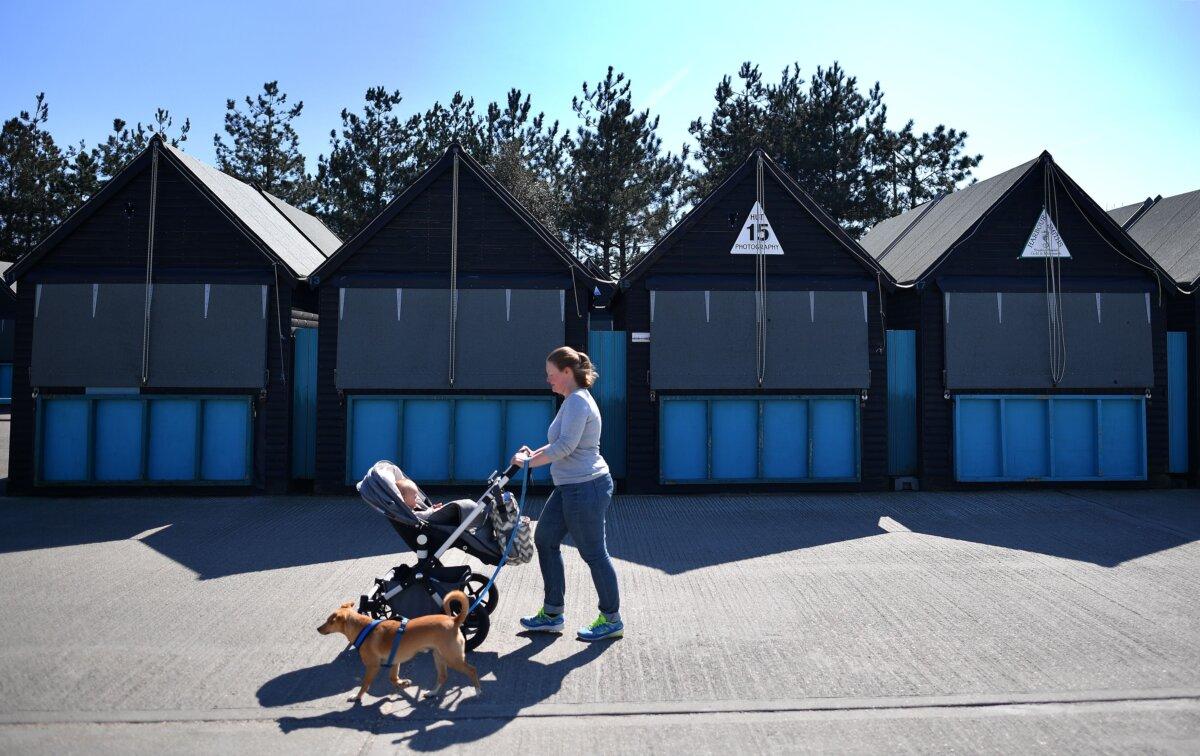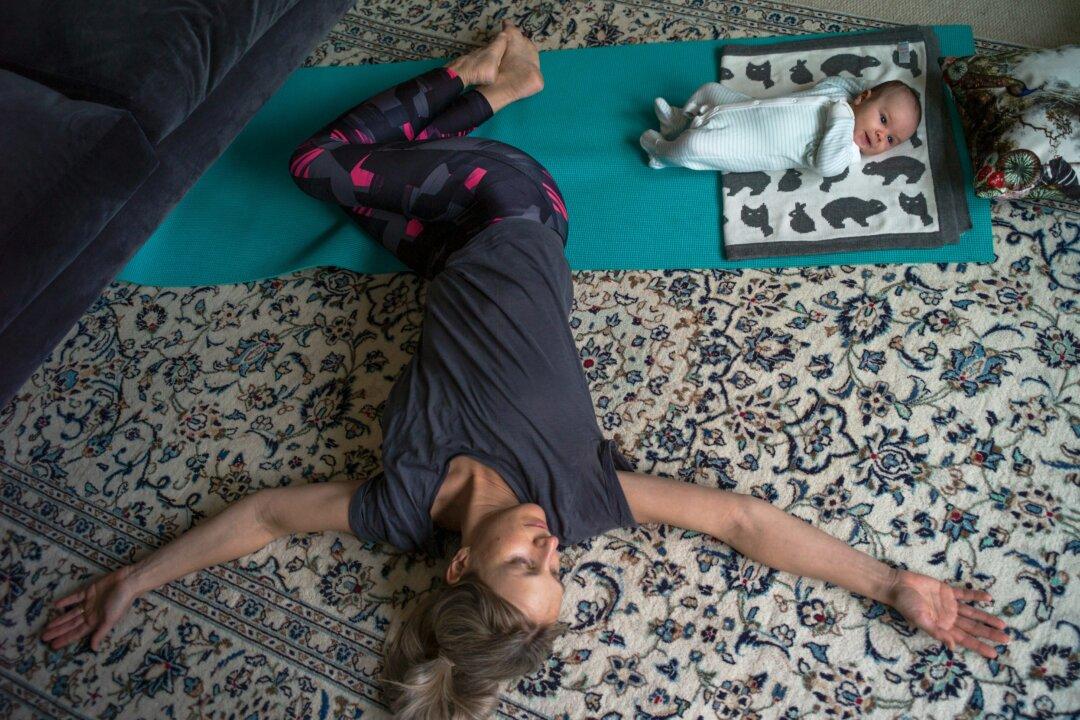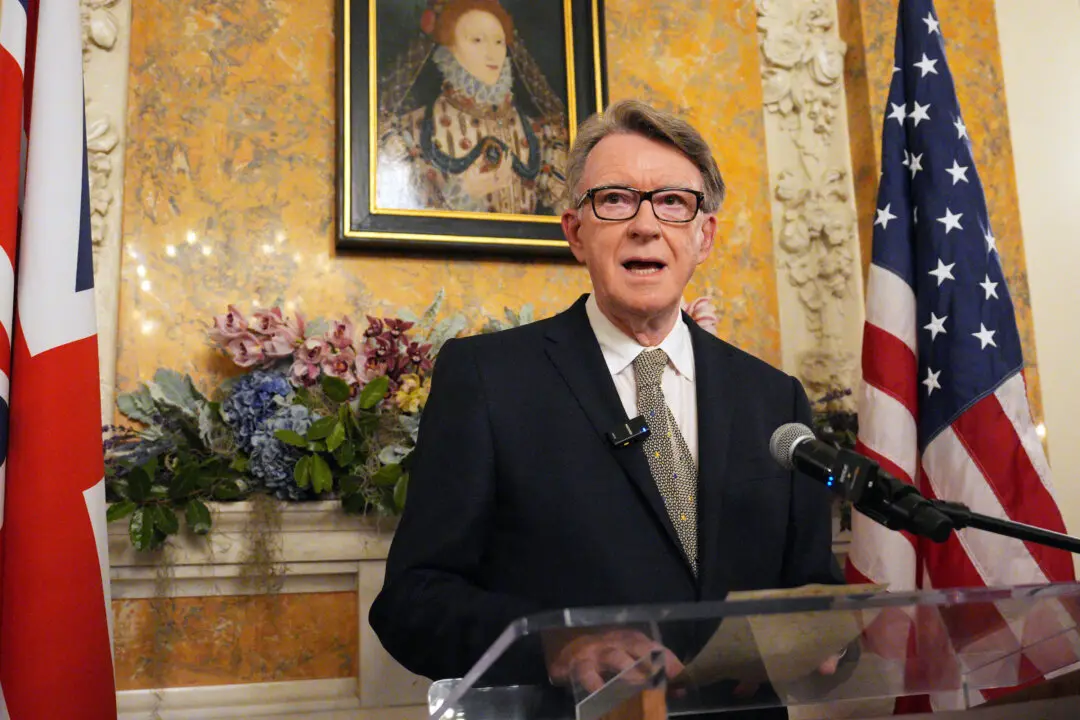The number of years of good health newborn babies in England and Wales can expect to enjoy has fallen over the past decade, the latest figures show, with the lingering impact of COVID-19 lockdowns taking a toll on babies.
But children’s campaign group Us For Them said it was “disingenuous” of a public body not to identify lockdowns as the culprit rather than the COVID-19 virus.
The average healthy life expectancy for a child born in England between 2020 and 2022 is estimated to be 62.4 years for males and 62.7 for females, down from 63.3 and 63.7 years respectively for births in 2017–2019.
The drop means the healthy life expectancy of a boy born in 2020–2022 is 9.3 months lower than it was in 2011–2013 when the current estimates began, according to the ONS.
Baby girls born in England have seen an even sharper fall of 14 months since 2011–2013.
‘Disingenuous Gaslighting’
But Molly Kingsley of children’s rights group Us For Them told The Epoch Times: “This is really disingenuous gaslighting. The British public deserve better from UK public institutions, including the ONS, who have attributed this to the pandemic.“The virus itself was minimal risk to this age cohort, and we know that taking away [parent and baby] support structures had a huge impact, and this led to a gradual erosion and underinvestment in children’s services as a result of huge pandemic borrowing—which is likely to be directly relevant to the trend we are now seeing.
“We know there have been multiple studies done into the effects on speech and language development of babies and young children and we know that had nothing to do with the virus and everything to do with the restrictions—the masks and so on.”
She added: “The lack of honesty helps no one and does children a huge disservice.”
“Instead of signing this treaty, we should be ruling out permanently the threat of lockdowns; they were a public health disaster and we don’t need any more evidence of that.”
The lockdowns and other restrictions are widely understood to have had a devastating impact on babies and children, contributing to speech and other developmental delays owing to a lack of normal social interaction and the impact of people wearing masks around them.

Based on the views of 5,000 new and expectant parents, the report found that many felt abandoned by the lack of support available while the restrictions were in place.
Almost half of the parents surveyed (47 percent) said their baby had become more clingy and a third (34 percent) said interactions had changed during lockdown. A quarter (26 percent) said their children were crying more than usual.
The report says: “The evidence is unequivocal that the first 1,001 days of a child’s life, from pregnancy to age two, lay the foundations for a happy and healthy life.
“The support and wellbeing of babies during this time is strongly linked to better outcomes later in life, including educational achievement, progress at work and physical and mental health.”
The authors added, “Our survey suggests that the impact of COVID-19 on these babies could be severe and may be long-lasting.”
Assessments show that one in five children are not meeting expected standards by the age of two-and-a-half, with thousands likely to need help such as speech and language therapy, according to the Royal College of Speech and Language Therapists.
Speech and language therapists have reported that they are facing increasing demand, with one in three saying referrals have doubled since the lockdowns, and many babies and toddlers were severely impacted by seeing many adults and children wearing masks around them.
Figures published by the ONS in January for overall life expectancy showed a similar picture, with a boy born in the UK between 2020 and 2022 expected to live until he is 78.6 years old, down from 79.3 years in 2017–2019, while a girl born in 2020–2022 was expected to live for 82.6 years, down from 83.0 years.
This does not necessarily mean a baby born in this period will have a shorter life, or spend less time in good health, the ONS said, because life expectancy estimates would go back up if mortality rates improve through the years.
The latest figures also show a drop in healthy life expectancy for babies in Wales, with females born in 2020–2022 likely to enjoy 60.3 years of good health, down from 62.3 years in 2017–2019, while males have seen a smaller fall from 61.3 to 61.1.
Regional Variations in Life Expectancy
There are sharp regional variations in healthy life expectancy, with the figures for males born in 2020–2022 ranging from 64.6 years in southeast England to 57.6 in the less affluent northeast; a gap of seven years, up from just under six years between the same two regions in 2017–2019.For females, the estimates for 2020–2022 range from a high of 64.7 years for babies born in the southeast to a low of 59.0 years for the northeast; a difference of just over five-and-a-half years, compared with nearly seven years in 2017–2019.
A Department for Health and Social Care spokesperson told the PA news agency: “We are committed to increasing healthy life expectancy by five years by 2035, and narrowing the gap between areas where it is highest and lowest by 2030.
“Our ambitious plans for a smoke-free generation will make a significant difference, as people in more deprived areas are almost twice as likely to die for smoking-related conditions.
“In addition to this, our Major Conditions Strategy will explore how we can tackle the key drivers of ill health in England to improve health and life expectancy across the country.”







